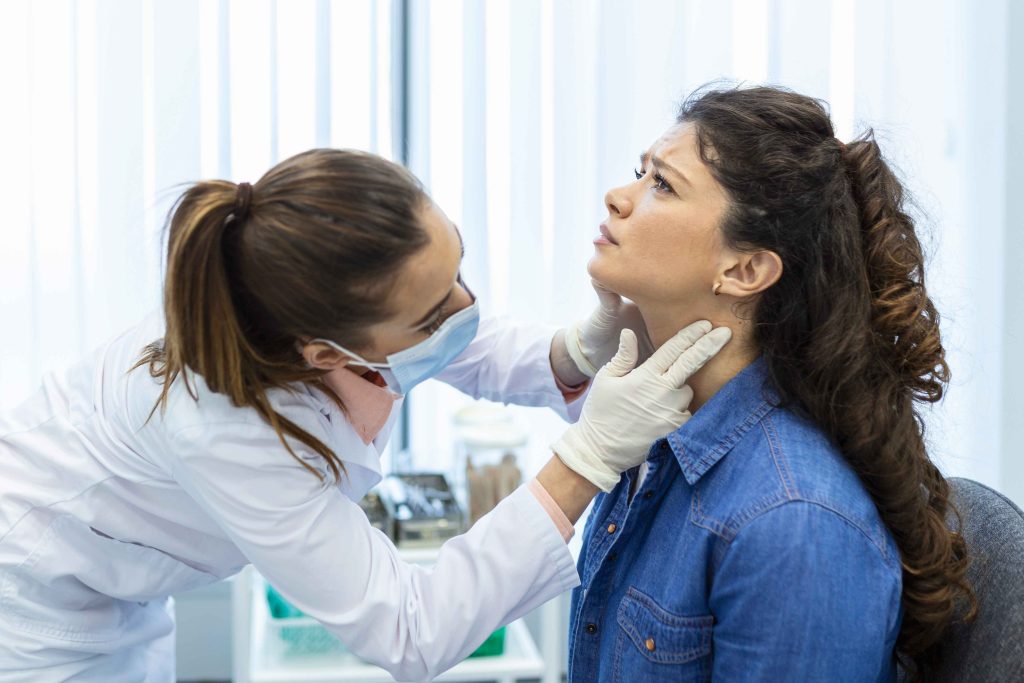ENT And Allergy of Delaware
ENT and Allergy of Delaware is a full-service hearing practice that offers a wide range of hearing care services to patients of all ages. It provides highly trained, certified audiologists. These audiologists offer comprehensive diagnostic testing and cutting-edge hearing aid services.
The medical abbreviation for ears, nose, and throat is ENT.
ENT Allergy
People with allergy symptoms are more likely to seek treatment from an ENT doctor. ENT surgeons specialize in structural issues of the head, face, sinuses, nose, throat, and voice box. Allergies can cause symptoms like difficulty breathing, sinus pressure, episodic ear discomfort, or a raspy voice, but they do not always require surgery.
ENT Allergy Symptoms
If you are allergic to ENT, you will most likely experience the following symptoms.
- Coughing/Sneezing Sore Throat Runny Nose
- Hearing Loss Due to Ear Pain
- Obstructive Sleep Snoring Apnea
- Breathing Problems/Difficulty Breathing/Mouth Breathing
- Balance Issues
- Pressure in the Sinuses
- Inflammation or infection of the tonsils or adenoids
- Skin Disorders
- Noise in the Ears (Tinnitus)
- Skin cancers and lesions
- The nose bleed
- Thyroid Enlargement
- Nasal Congestion/Itching, as well as Rubbing Dark Circles Under the Eyes
- Hoarseness/Frequently Clearing the Throat
- Smell and taste deficiency
If you are experiencing common ENT-related issues. You should contact Pinehurst Surgical Clinic’s Ear, Nose, Throat, Head & Neck Surgery.


Causes of ENT Allergy
The same bacteria and viruses frequently cause ear, nose, and throat infections. However, the symptoms may vary depending on where the infection is located. Ear infections can result in ear pain, wax or discharge, hearing loss, and balance issues.
Sneezing and a runny or blocked nose are common symptoms of nose infections. Infections that spread to other body parts, such as the sinuses, can cause headaches. Throat infections can cause soreness, scratchiness, pain, or difficulty swallowing. Swollen glands in your neck may also be present.
Managing Your Symptoms
Ear, nose, and throat infections are usually mild, and symptoms should go away in a few days. The infection may take a few weeks to clear up completely, but you should gradually feel better.
Most of the time, you should be able to manage the symptoms at home. Take an over-the-counter pain reliever such as paracetamol or ibuprofen to relieve any pain. It may also aid in reducing the inflammation causing many of your symptoms and lowering your fever if you have one.
You can also try the simple remedies listed below to relieve the symptoms of ear, nose, and throat infections:
- Ear pain can be relieved by placing a warm compress against your ear.
- A runny or blocked nose can be relieved with nasal sprays and decongestants.
- A warm drink laced with honey should help to soothe a sore throat.
- If you have an infection and need to go out in cold weather. Wearing a hat and scarf can help—cover your ears or nose if they’re affected or wrap your throat to keep it warm.
When to see a Doctor
Otolaryngologists (ENTs) specialize in treating disorders and conditions of the ear, nose, and throat, as well as related areas of the neck and head, according to the American Academy of Otolaryngology-Head and Neck Surgery. Ear infections, hearing loss, balance disorders (vertigo), ear pain, and ear ringing are treated surgically and medically by ENT specialists (tinnitus). ENT doctors can also treat congenital ear disorders.
If you have cancerous tumors, deformities, trauma, or diseases of the neck, face, or head. ENT doctors can perform cosmetic and reconstructive surgery on the neck, face, or head. Nerve problems in the head and neck can also treat control of smell, sight, hearing, and facial movements.
Nose: ENT doctors are frequently called upon to diagnose and treat problems with the nose, sinuses, and nasal cavities. These issues may impact your breathing, odor, or physical appearance.
Throat: An ENT specialist can help you manage and treat throat conditions or disorders. These conditions interfere with your eating, swallowing, digestion, speech, and even singing.
Common reasons to see an ENT specialist
The following are some of the most common reasons for seeing an ENT specialist:
- Head and neck cancer and tumors
- Problems with your nerves, pain, or injury to your ears, nose, or throat
- Breathing issues stemming from the nose or throat
- Infection of the tonsils or adenoid
- Dizziness and problems with balance
- Tinnitus
- Sinusitis that lasts a long time
- Infections of the ears
- Impaired hearing
- Swallowing or voice issues
- Cleft lip and palate
- Septum deviation
Diagnosis and Treatment
Ear Infection Diagnosis
If you have symptoms of an ear infection, your doctor will use an otoscope to examine the outer ear and eardrum. If you have an infection, your ear may appear red and swollen. A fluid discharge is another possibility. Unlike other infections, the specific bacteria responsible is not always known.
Treatment of Ear Infection
Doctors select antibiotics that will kill the most likely organisms when a bacterial source is suspected. This is due to the difficulty in obtaining an ear sample for culture. Antibiotics will not cure a viral infection; your body may need up to three weeks to fight the virus.
Throat Infection Diagnosis
Many viral infections, including strep throat, can cause enlargement, reddening, and white patches on the tonsils. A throat culture will be taken and sent to the lab if strep throat is suspected. This test is quick and simple to perform, with only minor discomfort from the possibility of gagging.
Treatment of Throat Infection
A throat culture will be taken and sent to the lab if strep throat is suspected. This test is quick and simple to perform, with only minor discomfort from the possibility of gagging. A cotton swab is brushed against the back of the throat before being sent to the lab for testing for streptococcal bacteria, which causes strep throat.
A standard strep test can take up to two days, but you can complete a rapid strep test in minutes. If the rapid strep test results are positive, antibiotics will be administered. If the rapid strep test results in a negative result, you will be sent home, and the standard culture will be performed.
Nose infection Diagnosis
The nose is the most protruding part of the face and contains many blood vessels. Even minor trauma, such as a nose bump or falling over, can cause blood vessels to rupture, resulting in a nosebleed.
Picking one’s nose is another possible cause.
excessive or vigorous nose blowing, as when dealing with an infection in a hot, dry climate, which causes cracking and cuts in the nose
Sinusitis can be caused by inhaling irritants or drugs such as cocaine.
Conclusion
The ear, nose, and throat can be affected by various problems and conditions. Because the areas are linked, a problem in one part of the system can cause symptoms in another.
General practitioners frequently treat ENT issues. For more complicated conditions or an accurate diagnosis, a doctor may refer a patient to an otolaryngologist with specialized training, tools, and experience in dealing with ENT problems.
Hope you will like this interesting article, if you need any help, contact us with any hesitation. Visit our site daily for interesting and helpful articles, stay healthy!
FAQs:
1. What are the most popular ENT and Allergy of Delaware specialties?
The ENT and Allergy of Delaware providers specializes in Ear, Nose, and Throat, Nursing (Nurse Practitioner), and Allergy & Immunology. You can compare group practices on Healthgrades to find the best care for you and your family.
2. What are the hours of operation for ENT and Allergy of Delaware?
View the hours of operation for ENT & Allergy of Delaware on Healthgrades.
3. What insurance plans do ENT and Allergy of Delaware accept?
To see if ENT & Allergy of Delaware is in-network, use the Healthgrades insurance check.







